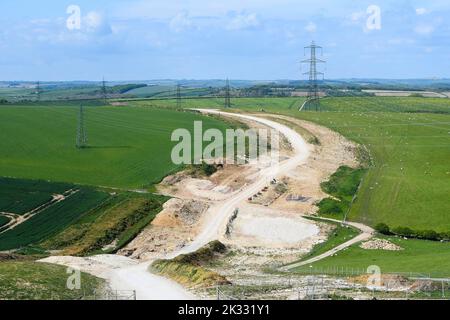

To reduce future reliance on imports, UK Prime Minister Liz Truss in September ended a moratorium on unconventional natural gas extraction in England, claiming it could “get gas flowing in as soon as six months.” However, supply from unconventional gas wells would likely take several years to bring online, gas producers have said. Negotiations with Norway’s Equinor SA are reportedly in an “advanced stage” and Norway is said to be eager to agree to a deal into the 2030s to support further gas investments in the North Sea.

Meanwhile, UK ministers are negotiating with Norway and Qatar for more long-term gas supplies. Russia had historically accounted for about 4% of UK supply. The UK is now receiving LNG from Algeria, Angola, Nigeria, Peru, Trinidad and Tobago, Qatar and the United States. If we have an extreme winter, we still have positive supply margins but we would need LNG to be flowing into the UK…Wholesale prices are high, so it does mean we will have to pay more. “During ‘normal’ winters, you would expect to see 15-20% of gas imports coming into the UK from European connectors. “Gas imports from Europe vary from year to year, depending on the type of winter,” Marsh said. Under one scenario, there could be three-hour power blackouts imposed if supplies fail to meet demand. Since the UK has little storage capacity compared to other European nations, it typically has imported gas from Europe to help meet winter demand.Ĭhances of a gas shortage in the UK this winter prompted National Grid’s Electricity System Operator to publish contingency plans in its Winter Outlook. The UK has exported record volumes of gas to Europe since Russia invaded Ukraine in February. We’ve got diverse supplies from Norwegian fields in the North Sea and the UK Continental Shelf, and LNG, so we have a very good mix of supply for the UK.” “But it is very unlikely we will have a huge problem this winter. “We certainly need LNG to flow into the UK,” Marsh said. “But we don’t actually envision needing it at the moment.” Bids were due earlier this month, but additional details were not available. National Grid spokesperson Andrew Marsh told NGI the latest gas tender is “a 9% increase on what we have already and is to cover any potential shortfalls” in liquefied natural gas deliveries if more supply is needed. “As a result, there is a possibility that Great Britain could enter into a gas supply emergency.” “Due to the war in Ukraine and gas shortages in Europe, there is a significant risk that gas shortages could occur during the winter 2022-23 in Great Britain,” said Britain’s energy regulator Ofgem.


 0 kommentar(er)
0 kommentar(er)
